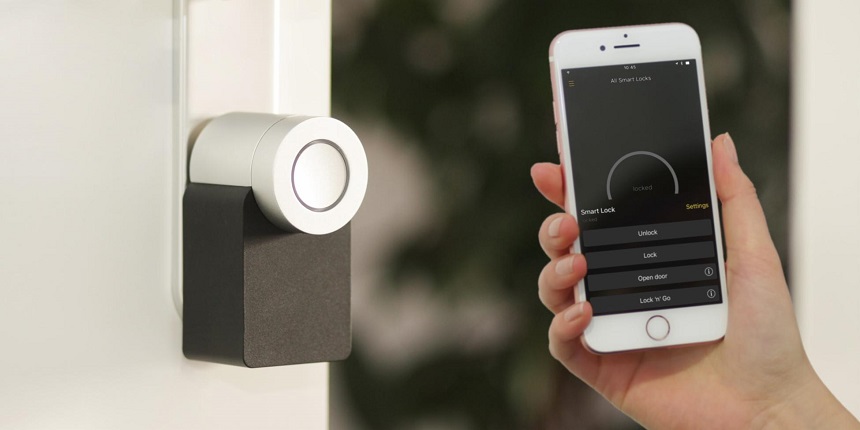Fine wine as an investment: A modern perspective
The world of wine has evolved over the last 50 years and continues to captivate collectors and connoisseurs alike.
Research commissioned by specialist insurer, Ecclesiastical, has revealed people in the UK are afraid smart lock technology services are leaving our doors wide open to criminals.

Sales of smart locks have rocketed in recent years as consumers embrace connected home technology. The survey revealed more than a quarter (29%) of people in the UK are interested in buying and installing the technology in their homes. Forecasts suggest the global smart lock market was worth more than £980million in 2018 and is expected to rise to more than £2billion by 20242.
Services such as Amazon Key enable couriers to open a customer’s front door and leave packages inside their home3. While Waitrose is also trialling smart lock technology to enable delivery drivers to enter a customer's home while they are out, and put their groceries away4.
But while many of us (34%) believe smart lock technology is convenient and will save us time, the survey also found almost two thirds (63%) of us are concerned about the security risks involved.
Nearly two thirds (62%) of people surveyed believe smart locks could be hacked, while over half (56%) think smart lock technology services could put their house more at risk of burglary.
For example, cybersecurity consultancy, F-Secure, recently discovered an exploitable design flaw in one brand of smart lock that can allow an attacker to easily pick the device5.
The research revealed significant differences in attitudes towards security across age groups. More than two in five people aged 55+ (42%) strongly agree they are concerned about security risks involved with smart lock technology, compared to less than a quarter of those aged 18-24 (23%).
The research also found significant gender differences in attitudes towards security risks. Just under a third of female respondents (32%) strongly agree that smart lock technology services could put their house more at risk of burglary, compared to just a quarter of male respondents (25%).
Sarah Willoughby, Art and Private Client Development Director at Ecclesiastical, said: “Our research has found most people in the UK are concerned about security risks associated with smart lock technology. As the adoption of smart lock technologies becomes more mainstream, it’s important that we consider the risks associated with smart lock technology systems. Owners of smart locks should consider how best to protect themselves and cyber insurance can offer a safety net should the worst happen.”
Tom Tahany, Operations Manager at Blackstone Consultancy said: “Smart lock technology development is still in its early phases and the devices available on the market today vary in quality. While the concept of smart lock technology services can be safe and secure if they are bespoke and specified correctly, budget smart lock devices available online or from your local hardware store may be vulnerable. We recommend that people consider all the security risks before installing ‘off the shelf’ smart lock technology services in their homes.”
Ecclesiastical, in collaboration with Blackstone Consultancy, has launched new guidance to help people understand the cyber risks they face.
Last year, Ecclesiastical launched a new enhanced Art and Private Client policy which includes cyber cover with home systems damage as standard, with the option to purchase cyber crime and cyber online liability as additional covers.
1 The research was commissioned by Ecclesiastical and conducted by Censuswide, with 2,012 adults aged 18+ between 10 July 2019 and 12 July 2019.

